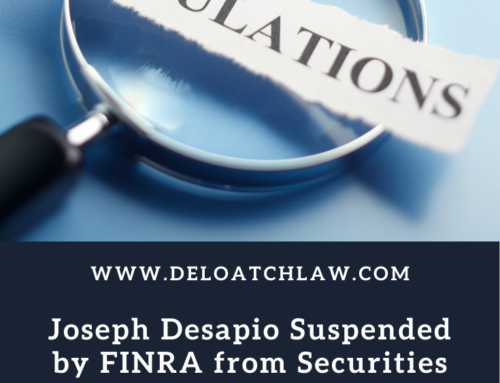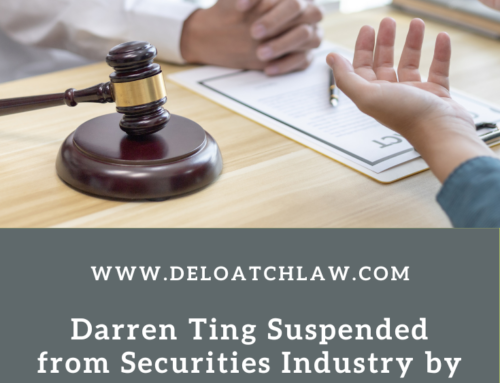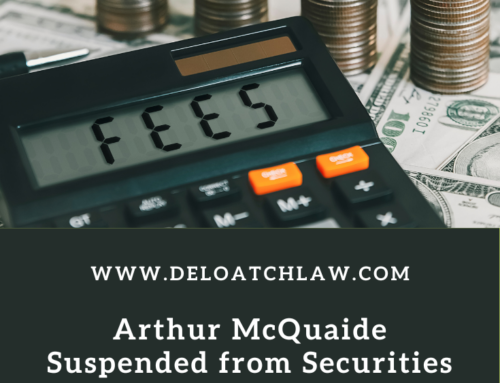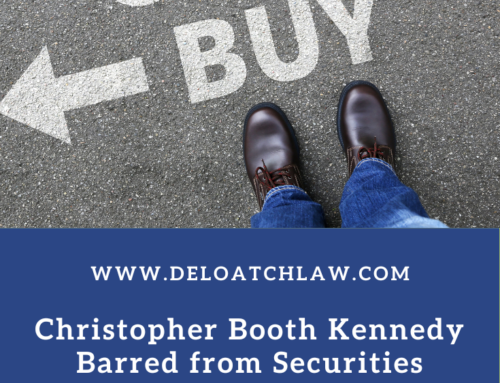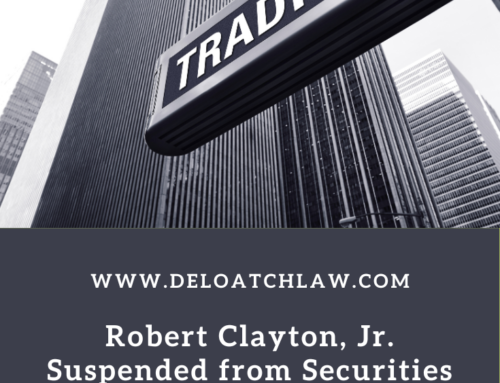 Did you lose money in the stock market due to what investors have dubbed the Coronavirus Stock Market Crash? Indeed, over the past two months the Dow Jones Industrial Average lost approximately 11,000 points. However, are your losses simply a function of the market crash or are there other variables at play? There is always some risk to investing, but were your losses actually caused or even magnified by the actions your broker and/or brokerage firm?
Did you lose money in the stock market due to what investors have dubbed the Coronavirus Stock Market Crash? Indeed, over the past two months the Dow Jones Industrial Average lost approximately 11,000 points. However, are your losses simply a function of the market crash or are there other variables at play? There is always some risk to investing, but were your losses actually caused or even magnified by the actions your broker and/or brokerage firm?
As discussed in a prior article (Market Shocks and the Unscrupulous Broker), market shocks like the Coronavirus Crash have a way of revealing stock broker fraud. Allthough the market may drop dramatically in these periods, the losses sustained by an investor may actually be due all or in part to their broker and/or broker-dealer engaging in fraud or failing to live up to their obligations under the rules of the securities industry.
Broker Obligations
The securities industry is heavily regulated by the Securities & Exchange Commission (SEC) and the Financial Industry Regulatory Authority (FINRA). Brokers and broker-dealers are required to abide by the rules promulgated by FINRA which subjects both to various obligations and duties. Failure to adhere to some of these duties and obligations can have a dramatic effect on a client’s portfolio under normal market conditions. However, when the market experiences a shock like that brought on by the Coronavirus Stock Market Crash, your broker’s failure to adhere to these rules can magnify the losses.
In general, brokers and broker-dealers have an obligation to “observe high standards of commercial honor and just and equitable principles of trade“, pursuant to FINRA Rule 2010. This necessarily includes following the rules of the securities industry that are in place to protect investors.
One such rule is the general suitability rule (FINRA Rule 2111), which requires brokers and broker-dealers to have a reasonable basis to believe that a recommendation is suitable for the customer. This obligation gives rise to another obligation under the same rule – the obligation to use reasonable diligence to ascertain a customer’s investment profile, which includes but is not limited to: the customer’s age; other investments; financial situation and needs; investment experience; time horizon; and risk tolerance. The reason for this obligation is very simple – brokers cannot live up to their obligation of making a reasonable investment recommendation if they don’t have a reasonable idea of their clients’ needs. Thus, if a broker recommends an investment or investment strategy that is inconsistent with your investment profile you have a legitimate cause of action against them.
Additionally, brokers and broker-dealers have an obligation to follow their clients’ instructions. Thus, if you instruct your broker to engage in or refrain from engaging in specific transactions, they are obligated to follow those instructions. For example, if you gave instructions to sell a specific stock at a specific price and the broker either failed to enter the order or entered it incorrectly, they are liable for the damages sustained from their failure to follow your instructions. Whether their failure was the product of negligence or an intentional act makes no difference.
Similarly, brokers and broker-dealers have an obligation to obtain their clients’ approval before executing securities transactions or investment strategies. Generally speaking, brokers are not allowed to use discretion in a client’s account without prior written authorization from the client to do so. Furthermore, the customer account must then be accepted/approved by the broker-dealer for discretionary trading. If the broker is engaging in transactions without your prior authorization (assuming the transactions are not sales of securities to meet margin calls) the broker is engaging in unauthorized trading and is typically liable for the losses.
Moreover, if your broker gives you misleading information regarding a security which you relied on for a transaction in that security, your broker is liable for the resulting losses. It is a sales-practice violation, and thus illegal for a broker to engage in misrepresentation.
Broker-Dealer Obligations
In addition to the obligations of individual brokers, broker-dealers have an obligation under FINRA Rule 3110 to properly supervise brokers and their handling of customer accounts. Thus, lack of supervision can make the brokerage firm liable for the actions of the individual broker. For example, lets say that a broker engaged in a pattern of unsuitable recommendations and/or unauthorized trading. The broker-dealer will be responsible for the actions of the broker if it failed to have adequate supervisory procedures in place to prevent and/or detect this type of illegal activity.
Coronavirus Crash or your Broker?
 How to determine if your broker was the cause of or contributed to your losses? The first thing to do is review your account holdings. Customers should review their account statements and holdings not only to determine if they made or lost money. They also need to determine if there are transactions that they did not authorize. Finding securities that you’ve never heard of or spoke to your broker about clearly is not the result of the Coronavirus Crash. Rather, it is a good indication that your broker may have engaged in unauthorized trading. Similarly, the absence of securities from your portfolio that you never gave instructions to sell could also be an indication that your broker engaged in unauthorized trading.
How to determine if your broker was the cause of or contributed to your losses? The first thing to do is review your account holdings. Customers should review their account statements and holdings not only to determine if they made or lost money. They also need to determine if there are transactions that they did not authorize. Finding securities that you’ve never heard of or spoke to your broker about clearly is not the result of the Coronavirus Crash. Rather, it is a good indication that your broker may have engaged in unauthorized trading. Similarly, the absence of securities from your portfolio that you never gave instructions to sell could also be an indication that your broker engaged in unauthorized trading.
Customers also need to be aware of the frequency of transactions in the account. There may be instances in which you still have the same securities in your account, however the activity reveals that there have been multiple sales and purchases that you didn’t authorize. This is not only an indication of unauthorized trading, it also reveals that there may be an issue of churning, both which would be the result of broker fraud and not the Coronavirus Stock Market Crash.
Clients should also determine whether the types of securities in their account(s) are consistent with their investment objectives and risk tolerance. If you are looking for investments to provide income with minimal risk to your principal, your portfolio should reflect that conservative nature. A portfolio that is disproportionately weighted in growth stocks would be an indication of unsuitable recommendations and/or over concentration. Additionally, a portfolio that is not well diversified could be an indication of broker negligence also.
What Should You Do?
You should speak with your broker and if need be, your broker’s supervisor and/or branch manager if you have any concerns. Or you should speak with a legal professional experienced in the securities industry.
The Law Office of Kevin J. Deloatch, Esq. has an extensive securities law practice and over 30 years of experience on Wall Street. If you would like a free consultation, call today at (646) 792-2156. If there is a basis for filing a claim your time may be limited. Call today to avoid delay.

